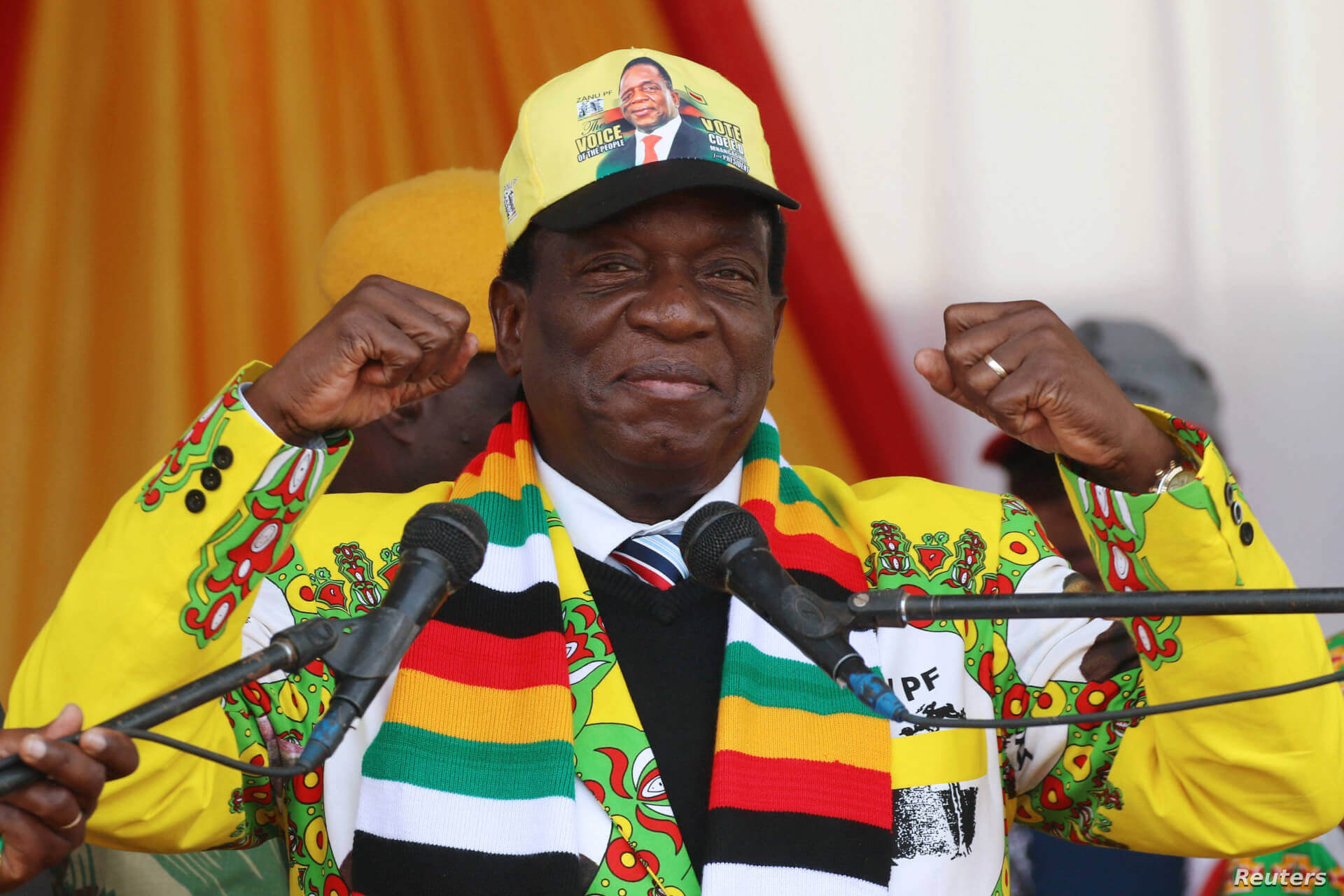After the Zimbabwe Catholic Bishops Conference (ZCBC) said that the country is reeling from a “multi-layered crisis”, Information Minister Monica Mutsvangwa issued a thinly veiled threat, describing the organization as a “genocidal and evil-minded misled flock of misled narrow-minded bishops”.
Last Friday, led by ZCBC President Archbishop Robert Ndlovu, the bishops wrote an open letter decrying the state of affairs in the country, saying, “The struggle in Zimbabwe has resulted in a multi-layered crisis of convergence of economic collapse, deepening poverty, food insecurity and human rights abuses.” They added, “The suppression of people's anger can only serve to deepen the crisis and take the nation into deeper crisis.”
Ndlovu compared the current suppression of political activists and opposition to the massacres of the early 1980s, when thousands were killed by the military in Matabeland and the Midlands regions
The government responded by saying that Ndlovu was driven by a motive of creating tribal divisions between the Ndebeles and the Shonas, with Mutsvangwa likening him to the Rwandan Catholic Church leader Archbishop Arthanase Seromba, who played a principal role in the 1994 Rwandan genocide. She further said that the bishops were interfering in politics by advocating “regime change”, akin to “post-imperial major Western powers”. The Information Minister went on to attack the “evil message” that “hobbles the progress of Africa”, “trumpets petty tribal feuds and narrow regionalist agendas”, and “sows seeds of […] strife as a prelude to civil war and national disintegration”.
Human rights and political activists and also political opposition in the country have reacted strongly to what they perceive as “dangerous hate speech”. The Zimbabwe Human Rights Association (ZimRights) released a statement on Sunday in which it urged the government to “retract the hate-filled statement”. The statement read: “We are, however, appalled that such a message of peace, solidarity with the poor and a call for opponents to dialogue has been met with hate and venom from the government. The government chose to attack the bishops calling them ‘evil’ and ‘genocidal’. The response did not address any of the issues raised by the bishops.” It also condemned the “unwarranted and unjustifiable” “ethnic attack” on the Archbishop.
Similarly, the Platform for Concerned Citizens (PCC) called the government’s response a “scurrilous attack on the Catholic Church, one of the strongest domestic supporters of the people of Zimbabwe”. The Catholic Professionals Network of Zimbabwe (CPNZ), too, called the bishops “duty-bound” shepherds who compelled to speak out about “widespread poverty, endemic corruption, human rights violations, poor health delivery, […] and political instability”. The Zimbabwe Lawyers for Human Rights (ZLHR) expressed its concern at the “intolerance” of President Emmerson Mnangagwa’s government to “dissent and criticism”. The Zimbabwe Congress of Trade Unions (ZCTU) called the “evil attack” by the government “pathetic and unwarranted”.
Meanwhile, the political opposition, MDC Alliance, said it was shocked by the “hurtful drivel” put forth by the government.
Zimbabwe is beset by spiraling corruption and an inflation rate that has touched a decade high of 800%. Likewise, according to the United Nations’ (UN) World Food Programme (WFP), close to two-thirds of the country are predicted to be at risk of hunger by the end of the year.
The remnants of oppression that guided former leader Robert Mugabe’s regime still run strong across the country, with dissenters facing a whole host of physical and psychological intimidation tactics. For example, in May, three female opposition activists—Cecilia Chimbiri and Netsai Marova, and Member of Parliament (MP) Joanna Mamombe—were pulled over by police in Harare and then abducted, tortured, and sexually assaulted. After they were released two days later, they were charged for violating COVID-19 regulations on public gatherings, for promoting public violence, and for ‘breach of peace’. The three women were scheduled to march in a peaceful protest on May 13 that was organized by the Alliance Youth Assembly of the principal opposition party, Movement for Democratic Change. Likewise, journalist Hopewell Chin’ono and opposition leader Jacob Ngarivhume were also arrested for allegedly inciting violence.
Such events have become even more common during the ongoing pandemic. In fact, during the past few months, over 100,000 citizens have been arrested for supposedly flouting coronavirus lockdown restrictions, wherein the government is using the coronavirus as a pretext to silence political dissent.
Zimbabwean Government Issues Scathing Attack on Catholic Bishops For Public Criticism
The government called the bishops “genocidal and evil-minded”.
August 20, 2020

Zimbabwean President Emmerson Mnangagwa SOURCE: REUTERS
